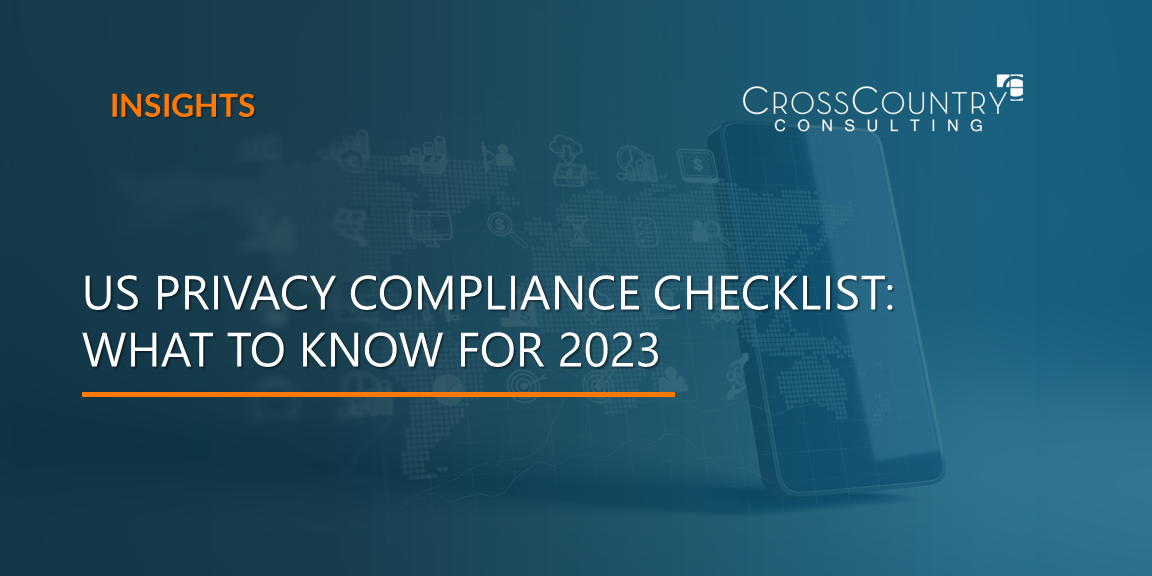Mobile App Development And The CNIL: A Privacy Compliance Checklist

Table of Contents
Understanding CNIL Requirements for Mobile Apps
The CNIL plays a vital role in protecting personal data in France, ensuring compliance with both European and national legislation. Key regulations impacting mobile app development include the General Data Protection Regulation (GDPR) and the French Data Protection Act. Understanding these regulations is paramount for CNIL compliance for mobile apps.
The CNIL emphasizes several key principles:
- Data Minimization: Collect only the data strictly necessary for the app's functionality. Avoid unnecessary data collection. This reduces your risk and simplifies compliance.
- Purpose Limitation: Clearly define the purpose for which each piece of data is collected and used. This purpose must be explicitly stated to the user.
- Data Security: Implement robust security measures to protect collected data from unauthorized access, loss, or alteration. This includes encryption, secure storage, and regular security audits.
- Transparency: Be transparent with users about what data you collect, why you collect it, and how you use it. Provide clear and easily understandable information in your privacy policy.
- User Consent: Obtain freely given, specific, informed, and unambiguous consent from users before collecting and processing their personal data. Avoid pre-checked boxes or implied consent.
Data Collection and Processing in Your Mobile App: A CNIL Perspective
Your mobile app likely collects various types of data. Understanding the legal basis for processing each type is crucial for CNIL compliance. This includes:
- Personal Data: This includes names, email addresses, and user IDs. The legal basis for processing this data often relies on consent or contractual necessity.
- Sensitive Data: This includes health data, biometric data, and religious beliefs. Processing sensitive data requires a stronger legal basis and additional safeguards.
Here's a breakdown of common data types and considerations:
- Location Data Collection and Usage: If your app uses location services, clearly explain why this data is necessary and how it will be used. Users should have control over location sharing.
- Contact Information Collection and Management: Obtain explicit consent for collecting contact information and ensure it's securely stored and used only for the stated purpose.
- In-App Purchases and Financial Data Security: Comply with Payment Card Industry Data Security Standard (PCI DSS) requirements when processing financial data. Ensure secure payment gateways and encryption.
- User Behavior Tracking and Analytics: Be transparent about tracking user behavior. Users should have the option to opt-out of tracking. Consider using anonymized or aggregated data whenever possible.
- Third-Party Integrations and Data Sharing: When integrating with third-party services, ensure they also comply with GDPR and CNIL regulations. Clearly inform users about data sharing practices.
Building CNIL-Compliant Features into Your Mobile App
Integrating CNIL compliance into your app's design is key. This includes:
- Privacy Policy: Create a clear, concise, and easily accessible privacy policy that complies with CNIL guidelines. This policy should detail your data collection practices, user rights, and security measures.
- Data Subject Rights: Implement features allowing users to exercise their rights under the GDPR, including the right to access, rectify, erase, restrict processing, and data portability. This requires mechanisms for users to request and receive this information.
- Security Measures: Implement robust security measures, such as encryption (both in transit and at rest), secure authentication, and access controls to protect user data.
Here's what should be included:
- User Consent Management Features: Provide clear opt-in/opt-out options for data collection and processing. Ensure consent is granular and easily revocable.
- Data Breach Notification Procedures: Establish procedures for promptly notifying the CNIL and affected users in case of a data breach.
- Regular Security Audits and Updates: Conduct regular security audits and update your app to address vulnerabilities and ensure ongoing compliance.
- Integration with CNIL-Approved Tools and Services: Consider using CNIL-approved tools and services to facilitate compliance.
CNIL Audits and Compliance Procedures
The CNIL may conduct audits to ensure compliance. Non-compliance can result in significant fines and reputational damage.
- Preparing for a CNIL Audit: Maintain thorough documentation of your data processing activities, security measures, and user consent mechanisms.
- Responding to CNIL Requests: Respond promptly and comprehensively to any requests from the CNIL.
- Strategies for Mitigating Risks: Proactive compliance measures, regular audits, and transparent data practices minimize risks.
- Resources for Staying Updated on CNIL Regulations: Stay informed about changes in CNIL regulations through their website and official publications.
Conclusion
This checklist provides a crucial overview of CNIL compliance for mobile app development. By understanding and implementing these measures, you can ensure your app is not only legally sound but also fosters user trust and confidence. Remember, neglecting CNIL compliance for mobile apps can result in severe consequences. Proactive measures are vital. Start building a compliant and successful mobile app today by thoroughly reviewing your data practices against these guidelines and seeking expert advice when necessary. Don't risk penalties—prioritize CNIL compliance from the start. Regularly review your app's data handling practices to maintain ongoing CNIL compliance.

Featured Posts
-
 Vorombe Tyazhelovesy Pernatogo Mira Evolyutsiya I Vymiranie
Apr 30, 2025
Vorombe Tyazhelovesy Pernatogo Mira Evolyutsiya I Vymiranie
Apr 30, 2025 -
 Reuben Owen Shares His Least Favorite Aspect Of Growing Up On Our Yorkshire Farm
Apr 30, 2025
Reuben Owen Shares His Least Favorite Aspect Of Growing Up On Our Yorkshire Farm
Apr 30, 2025 -
 Comprendre Le Document Amf Cp 2025 E1029244 D Edenred
Apr 30, 2025
Comprendre Le Document Amf Cp 2025 E1029244 D Edenred
Apr 30, 2025 -
 Iva I Siyana Postizheniyata Prodlzhavat
Apr 30, 2025
Iva I Siyana Postizheniyata Prodlzhavat
Apr 30, 2025 -
 Obrushenie Gorki Postradavshie V Tyumeni Otkazalis Ot Gosudarstvennoy Pomoschi
Apr 30, 2025
Obrushenie Gorki Postradavshie V Tyumeni Otkazalis Ot Gosudarstvennoy Pomoschi
Apr 30, 2025
Latest Posts
-
 Us Canada Relations Under Scrutiny Trumps Remarks Days Before Canadian Election
Apr 30, 2025
Us Canada Relations Under Scrutiny Trumps Remarks Days Before Canadian Election
Apr 30, 2025 -
 V Kanade Trampa Nazvali Zlobnym Samovlyublennym Sliznyakom Reaktsiya Na Slova Kanadskogo Politika
Apr 30, 2025
V Kanade Trampa Nazvali Zlobnym Samovlyublennym Sliznyakom Reaktsiya Na Slova Kanadskogo Politika
Apr 30, 2025 -
 President Trumps Speech To Congress Analysis And Reaction
Apr 30, 2025
President Trumps Speech To Congress Analysis And Reaction
Apr 30, 2025 -
 Trumps Controversial Remarks On Canada Days Before The Election
Apr 30, 2025
Trumps Controversial Remarks On Canada Days Before The Election
Apr 30, 2025 -
 Trumps Congressional Speech Early Presidency Accountability
Apr 30, 2025
Trumps Congressional Speech Early Presidency Accountability
Apr 30, 2025
